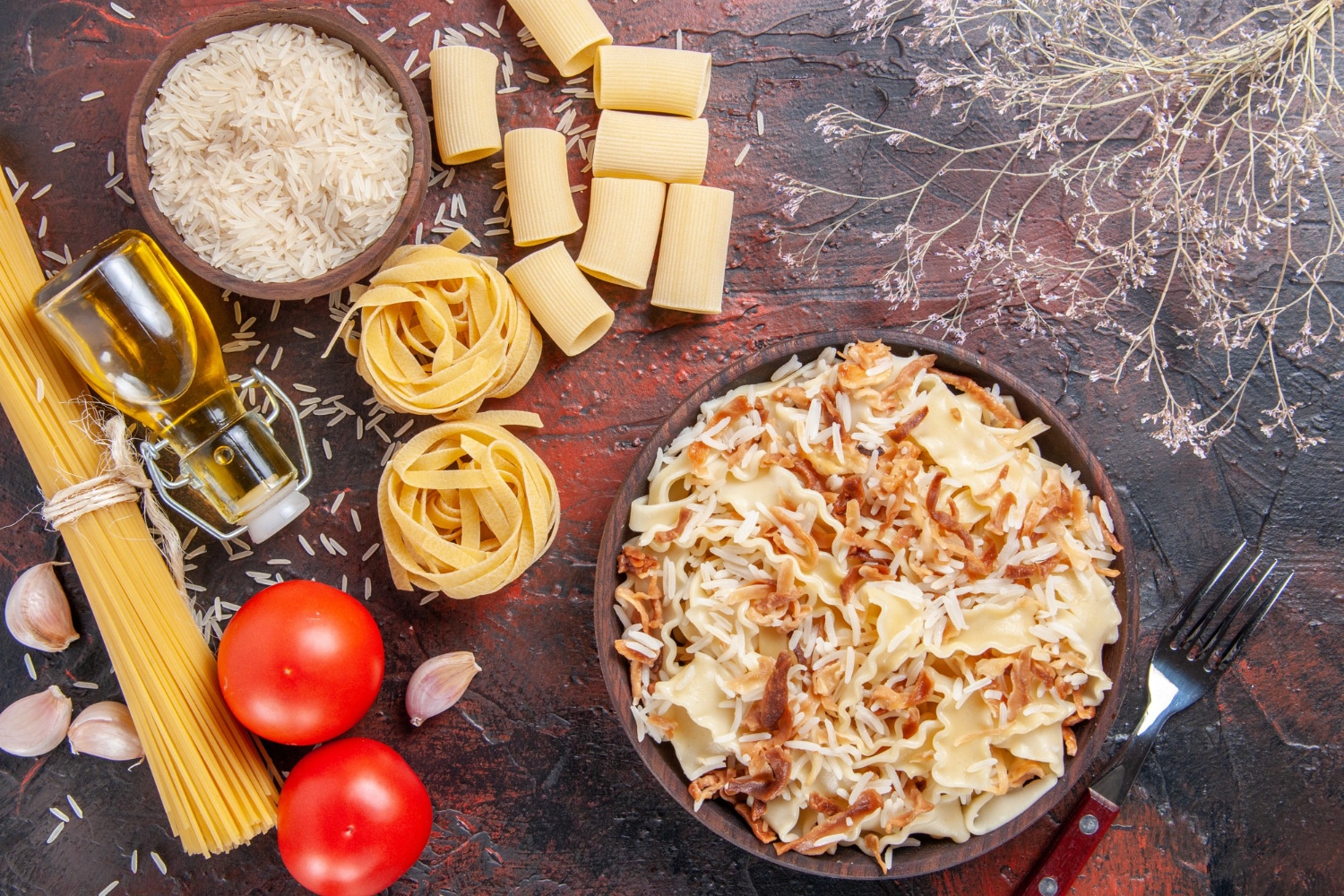Deciding on healthy staples is critical if you want to start losing weight. To be fair, whole foods can help you lose weight and it’s usually the processed food items and fast food that bring an unbalanced ratio of calories and nutrients to the diet.
Rice and pasta are two of the most well-loved staples in the world. If you are thinking of giving up white bread, you may have come across some diets that are advocating that you consume either more rice or more pasta. So, which is the best choice if you’re trying to drop the pounds to become leaner and better?
Is Rice or Pasta Better for Weight Loss?
Weight loss is such a complex matter that it involves not just calories but also the quality of the nutrition that you are getting. People who scan labels and check nutritional information are usually at the phase in their weight loss journey where they are familiarizing themselves with the caloric load of common food items.
Since staples like rice and pasta will form a large part of your diet, you’re likely thinking of how to portion your meals with these. If you measure your food by cup, it’s best to understand how much energy or calories these staples provide.
In the battle of calories, pasta trumps rice by a mile. A single cup of cooked pasta provides 221 calories, while one cup of cooked white rice will provide 205 calories, average. Unlike rice, pasta has one gram of fat per serving (without the sauce), while rice doesn’t have any fat in it.
Despite providing higher calories, rice has a higher carbohydrate content than pasta per cup. One cup of cooked rice has 45 grams of carbs, while pasta has just 43 grams.
The two-point difference can mean something in the long term if you eat a lot of either of these staples. We’re not saying that you shouldn’t eat them, but you have to keep track of the caloric content.
One other thing that people miss with pasta specifically is the caloric load of the sauce and other items that they put in the pasta after cooking it.
Remember that pasta’s caloric profile isn’t complete without the actual sauce. If you add a lot of cheese, milk and butter to the sauce, then those ingredients will add to the total calories of your meal and the pasta won’t be the only thing on the plate that is adding numbers to your day’s caloric intake.
Does Rice and Pasta Cause Belly Fat?
Newer studies on the science of calories and belly fat reveal that the type of carbohydrates that you eat has a big impact on how much belly fat you will accrue through the years.
Processing has a lot to do with it, and if you want to cut the belly fat quicker, you simply need to be more mindful of what you are eating. Currently, experts are warning heavily against eating white rice and white bread.
White rice has long been a problem of people who want to lose weight because it can be converted to glucose fairly quickly, and it causes people’s blood sugar levels to spike fast, too.
So, if you have white rice as your staple, you must control your intake and turn to other food items that can provide the same amount of energy that you need for your day. This important, dietary reminder applies most especially to seniors who want to control bloat and weight gain during their golden years.
As a person ages, he becomes more susceptible to gaining weight because of less physical activity and a slower metabolism. This slowness in the ability to burn calories is tied to the fact that not people engage in enough exercise throughout their lives, and we see a compounded effect.
What about pasta?
Interestingly enough, pasta doesn’t have the same bad reputation as white rice, despite being made of mostly wheat flour and water. Research shows that if a person is already using a low glycemic diet (with lower carbohydrate intake), the addition of pasta as a staple will not contribute to gaining weight and growing belly fat. In fact, newer studies show that eating pasta can actually lead to burning off more fat.
Here’s the part that has everyone confused: if eating pasta is healthy, then how come some people who eat pasta regularly are still gaining weight? It all has to do with how much pasta you are eating in the first place.
If you are portioning your meals correctly, pasta won’t be a big problem with your weight loss journey. If you don’t measure portions and you just eat how much you want, then that’s the time when the benefits of the chosen staple are simply trumped by how much food you are eating.
Which One Should I Eat for Weight Loss?
Unless you can commit to eating brown rice for a long time, the simpler solution for weight loss is picking pasta. However, this recommendation does come with several pointers. First, you can’t eat just any kind of pasta. To succeed with your weight loss journey, you need whole wheat pasta. Whole wheat pasta has more dietary fiber, it contains all the parts of the grain and it simply is good for you. Whole grain pasta will make you fuller, faster, too. Second, you can’t rely on pasta alone. Your pasta should have a balanced mix of fat and protein, too.
Complex carbohydrates are fine, but eventually, if you are only eating pasta and sauces, you will gain weight. That’s why the third pointer is to always add lean portions of chicken and other good proteins to your pasta. Seafood isn’t so bad either. Balance is critical for your weight loss and if you keep eating familiar food, you can keep your appetite and hunger under control, too.

